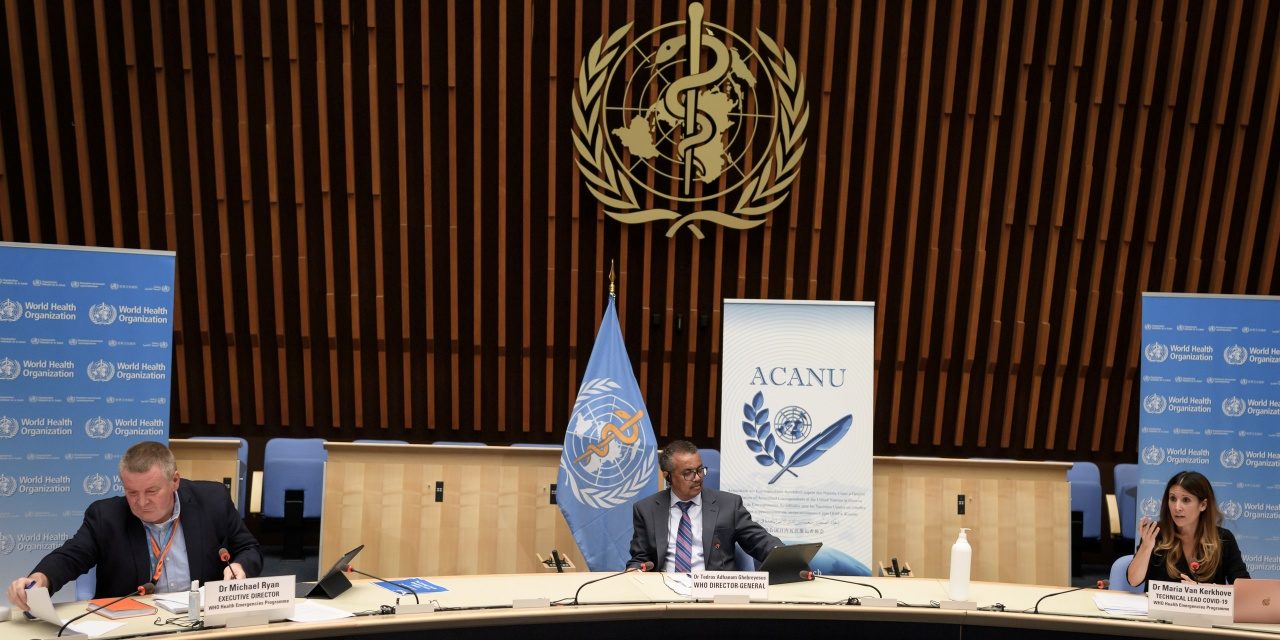The World Health Organization (WHO) is warning countries to only use lockdowns as a last resort, acknowledging that the economic consequences could cause a “global catastrophe.”
This shift in language comes after WHO Director-General Tedros Adhanom Ghebreyesus in August touted the benefits of lockdowns on the environment, which he said have “given us a glimpse of our world as it could be, cleaner skies and rivers.”
Dr. David Nabarro, the WHO’s Special Envoy on COVID-19, warned against lockdowns in an interview with Spectator TV on October 9.
“We in the World Health Organization do not advocate lockdowns as the primary means of control of this virus. The only time we believe a lockdown is justified is to buy you time to reorganize, regroup, rebalance your resources; protect your health workers who are exhausted,” Dr. Nabarro said. “But by and large, we’d rather not do it.”
He then went on to lament the massive costs of lockdowns, specifically on those who are already struggling economically.
“Just look at what’s happened to the tourism industry for example in the Caribbean or in the Pacific because people aren’t taking their holidays. Look what’s happened to smallholder farmers all over the world because their markets were dented.
“Look what’s happening to poverty levels – it seems that we may well have a doubling of world poverty by next year. We may well have at least a doubling of child malnutrition because children are not getting meals at school and their parents, in poor families, are not able to afford it. This is a terrible, ghastly global catastrophe, actually.”
Dr. Nabarro concluded by begging world leaders not to use lockdowns to prevent spread of the coronavirus.
“We really do appeal to all world leaders: stop using lockdowns as your primary control method. Develop better systems for doing it… remember, lockdowns just have one consequence that you must never ever belittle, and that is making poor people and awful lot poorer,” Dr. Nabarro said.
When the WHO officially declared COVID-19 a global pandemic, it did not preclude lockdowns as a means to control the virus.
“We have called every day for countries to take urgent and aggressive action. We have rung the alarm bell loud and clear,” WHO Director-General Ghebreyesus said. “All countries must strike a fine balance between protecting health, minimizing economic and social disruption, and respecting human rights.”
Despite this switch from the WHO, according to analysis from USA Today, seven states are tightening restrictions on their citizens while four have paused reopening their economies.
Donald Luskin, an officer at an analytics firm, wrote in a recent piece in the Wall Street Journal that his firm found that “lockdowns correlated with a greater spread of the virus.”
“States with longer, stricter lockdowns also had larger Covid outbreaks. The five places with the harshest lockdowns—the District of Columbia, New York, Michigan, New Jersey and Massachusetts—had the heaviest caseloads,” he wrote.
As 15 days to slow the spread inches close to 15 months, many Americans want things to return to normal as quickly as possible. It appears as far as lockdowns go—the WHO now agrees.
You can follow this author on Twitter @MettlerZachary
Photo is from Reuters.






